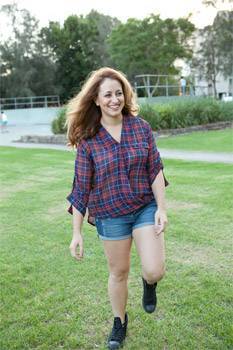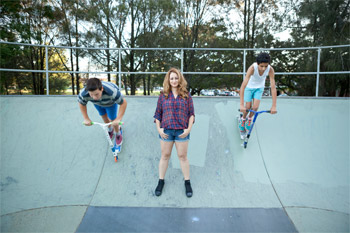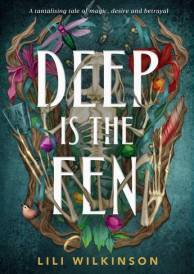Melissa Abu-Gazaleh Top Blokes Foundation Interview

Melissa Abu-Gazaleh Top Blokes Foundation Interview
Despite growing up in a disadvantaged area, Melissa Abu-Gazaleh faced grim hopes of achieving her dream of entering university but was saved by the many female only programs she accessed during high school. Appreciative of these opportunities, she turned her attention towards helping young men, after realising that they were drastically overrepresented in violent crimes, suicide and anti-social behaviour. She investigated programs that focused on improving men's social education, but could not find any existing groups. Aged 19, frustrated and determined, Melissa formed the Top Blokes Foundation to improve young men's social and mental health outcomes within Australia.
Ten years into its operation, Top Blokes Foundation now helps over 1,100 boys aged 14-24 each year through social education and peer-mentoring programs. As a youth-led organisation, Top Blokes reaches out to vulnerable, at-risk males through qualified youth workers that the boys feel comfortable with and can relate to. The Junior Top Blokes program specifically targets young men aged 14-17 with workshop topics including; alcohol and other drugs, mental health, masculinity, anger management, cyber bullying and sexting, realities of pornography, peer pressure and risk taking, leadership and teamwork.
The benefits and results of Top Blokes include increased mental wellbeing and self-confidence and techniques for conflict resolution and anger management. Many participants of the program have also gone on to become Top Blokes Youth Ambassadors themselves, and have found the program has even improved their prospects to enter the workforce. Keaton James, a Top Blokes graduate and now a Youth Ambassador, inspires his peers to consider issues such as gender equality. 'I learnt how I could make a difference, and it starts with how we talk about girls and how we treat them with respect. The Top Blokes mentors showed us that if we take a stand against the discrimination and disrespect we see, we can make a big difference," says Keaton.
Melissa has been recognised for her dedication to improving young men's health. She is the 2016 NSW Young Australian of the Year, selected as one of Australia's 100 Brightest Young Minds, named in Australia's Young and Extraordinary and is the has also been a guest speaker at major events including the National Boy's Health Forum.
Melissa plans to raise the profile of young men's health issues and build a strong platform for young men to have a voice on the very issues that impact them. 'When we invest in boys we change the course of our future as a cohesive and equal society. Working with thousands of young men has taught me this. When we educate boys on social issues, it is here that we can empower them to make the changes needed to improve society as a whole. It is an investment in our future that we can all benefit from," says Melissa. With issues such as domestic violence and youth suicide at the forefront of the national agenda, Melissa is dedicated to make a positive difference and be part of the societal change that is so desperately needed.
For more information please visit www.topblokes.org.au
Interview with Melissa Abu-Gazaleh
Question: Congratulations on the 2016 NSW Young Australian of the Year award, how does it feel to be recognised for your hard work?
Melissa Abu-Gazaleh: Thank you. Being awarded as NSW Young Australian of the Year has been an incredible. Meeting all the other award receipts and being inspired by their stories and wisdom has been rewarding. I was fortunate to win the award because it provided a platform to bring urgent attention to the issue of young men's health within Australia.
Young men's health is not an easy topic or even an issue that many people are familiar with, but it was lovely to be recognised for the work that we do at the Top Blokes Foundation.
Question: What is the Top Blokes foundation?
Melissa Abu-Gazaleh: The Top Blokes Foundation is Australia's leading boy's social education organisation. We work with over 1,100 young men and teen boys annually to improve their mental health and well-being through our peer-mentoring and engagement programs.
Our core program, the Junior Top Blokes Mentoring Program is a 6 month program where our positive male mentors will deliver weekly workshops to young men, covering the topics of mental health, drugs and alcohol, masculinity, anger management, healthy relationships and anger management.
We help boys to understand how they come to make a decision in their personal lives and how to make better choices when in a situation with peers where there is a high risk taking or peer pressure.
 Question: What inspired the creation of Top Blokes foundation?
Question: What inspired the creation of Top Blokes foundation? Melissa Abu-Gazaleh: At 19. I came across research that showed that the top two causes of death for young men were suicide and road accidents, which I thought was devastating considering that both are preventable. I also learnt that males are less likely to see mental health assistance than females and that much of the social commentary of young males in the media was negative. It occurred to me that young men, my own age, had a very different experience understanding themselves and their personal potential. I realised that our media painted young men as liabilities and this influenced Australians opinions on them. But was thinking: is this actually fair? Did young men actually get a fair go to grow and thrive as I did as a young woman?
I wanted to then understand, how do we create a culture where young men themselves feel self-empowered and who want to improve their own mental health and well-being. To me, the key to changing our culture was to inspire boys to keep themselves and their friends healthy and safe. I searched for organisations and campaigns that were addressing this and there wasn't any. So I said what any other frustrated young person would say, I said 'screw it, I'll start something myself'. Because for years I was told as a young female that I had the power to make a positive change where I see fit. And to me, boys need our help to realise their own potential and how they too can become good Australian citizens.
Question: What are some of the programs Top Blokes runs?
Melissa Abu-Gazaleh: 1) Junior Top Blokes Mentoring Program – a 16 week school peer-led mentoring program for teenage boys aged 14-17 to look at various social issues that stand as barriers to young men achieving optimal mental health and well-being.
2) Building Blokes – a life and pre-employment mentoring program for 16-24 year old males. Through their participation they are also able to -volunteer off' any unpaid fines with the Department of State Revenue. This enables young men to increase their skill-development, employability and social inclusion.
3) National Boy's Health Forum – a half day event held at NSW Parliament House to discuss the latest trends and emerging issues in young men's health.
4) Public Education Program – a series of public presentations for young people, parents, educators and corporates who want to understand issues and strategies affecting young men and who want to know more about the Top Blokes Foundation.
Question: And, who do these programs help?
Melissa Abu-Gazaleh: These programs predominately help young men aged 14-24 years who need the additional support and mentoring to get them back on track.
Our Public Education seminars and events assist parents, educators and the general community to understand how they can better relate to young men, strategies for young men's engagement and how to help raise boys into top blokes.
Question: Why do you think the suicide rate for young men is increasing?
Melissa Abu-Gazaleh: Australia is in a fortunate position to have well-researched and established mental health education initiatives. We find that young people, now more than ever, are more knowledgeable about mental health.
We know that often, when young men are at risk of suicide, they are more likely to reach out to a friend than to a health professional. Often, friends are unsure of the signs to watch out for and unsure how to get their friend to health professionals (like a doctor or a counsellor). We need to make suicide prevention programs more accessible to young people so that they are aware of the signs of a friend who is at risk of suicide and can direct them to the relevant health services.
We also need to reduce the stigma around boys asking for help. We all know that traditionally, society tells men and boys that they shouldn't show emotions, and while we see that young men today don't buy into those restricted ideas of masculinity as much as previous generations, we should all still ensure that we personally don't reinforce these masculine stereotypes. We all need to be non-judgemental and provide a safe environment for boys to ask for help and display their emotions. The more we show boys it's acceptable, the more likely they are to reach out for help.
Question: How does Top Blokes aim to reduce suicide rates in groups of at-risk males?
Melissa Abu-Gazaleh: While we don't deliver any direct suicide prevention programs (there are already existing ones that do a great job), we aim to work from a preventative space, that is, help boys and young men to build strong emotional resilience, mental well-being and practical skills in seeking mental health support for either themselves or their peers.
Our goal is to build a culture where young men feel safe to share their emotions and any struggles that they do have with seeing a bright future for themselves.
Question: What are the mental health symptoms and signs to look for in men?
Melissa Abu-Gazaleh: Signs and symptoms can vary from person to person. Not all men and young men will present the same way. But here are some red flags to keep an eye out for:
• He has become withdrawn: have you noticed that he doesn't seem interested in the same things as he used to like his work, being social or his favourite hobbies?
• He doesn't socialise as often: do you find him turning down invites to social gatherings or parties? Or do you notice that he's not his usual self around friends?
• He makes concerning comments: have you heard him say -there's no hope for my future', 'I don't want to live anymore', or -no body wants me around?
Question: What's next for, Top Blokes?
Melissa Abu-Gazaleh: At the Top Blokes Foundation we are working extremely hard to advocate for young men's health issues. We're also focusing on expanding our programs in regions across Australia. That means, working hard on educating communities on why they need to have an active young men's health strategy within their local communities.
Question: How can Australians support Top Blokes?
Melissa Abu-Gazaleh: We each play a role in supporting and mentoring boys to grow into Top Blokes. Whether you are a parent, educator or community member, we can all start by having good, healthy connections with the young men around us.
If you'd like to support the Top Blokes Foundation, we welcome you to make a donation on our website www.topblokes.org.au, sign up to our newsletter or to join in the conversation on twitter (@top_bloke), Facebook (@topblokesfoundation) or Instagram (@topblokesfoundation).
Interview by Brooke Hunter
MORE





